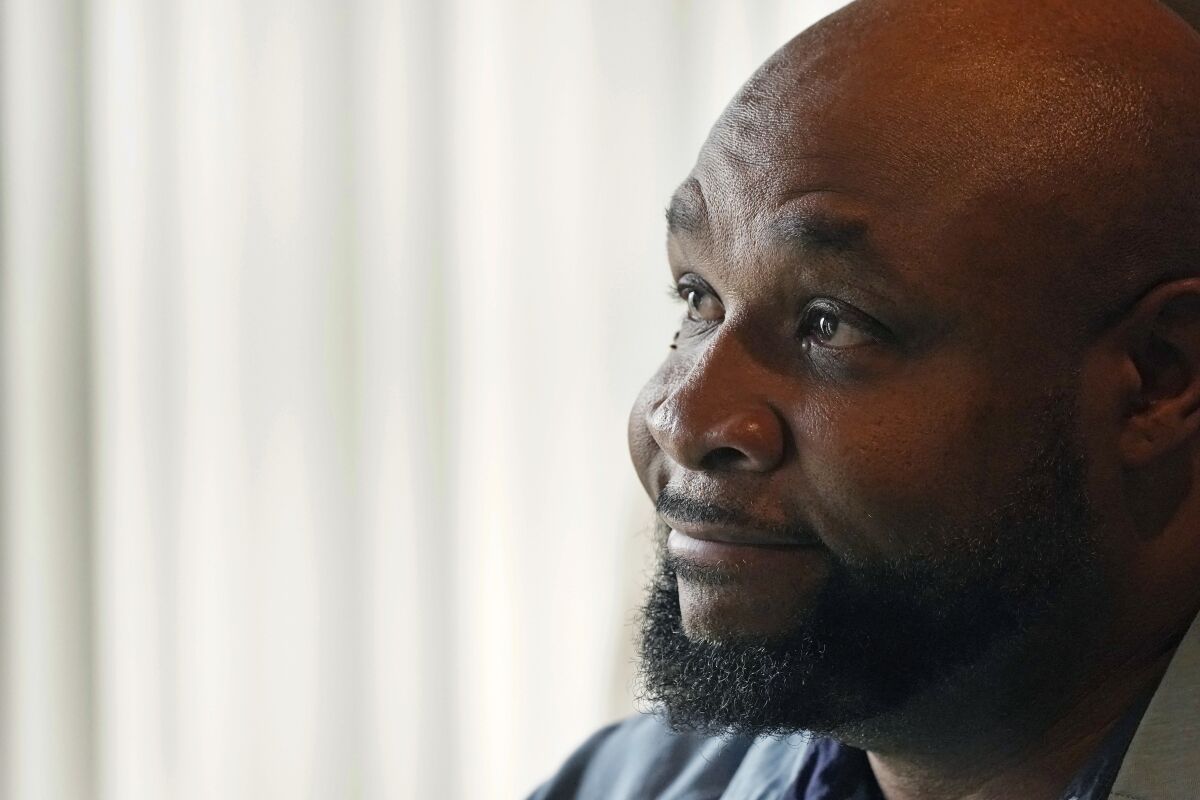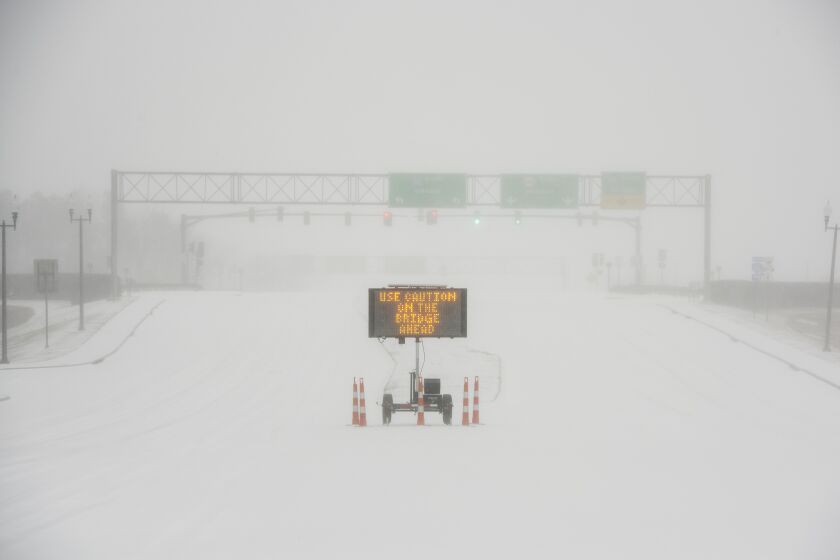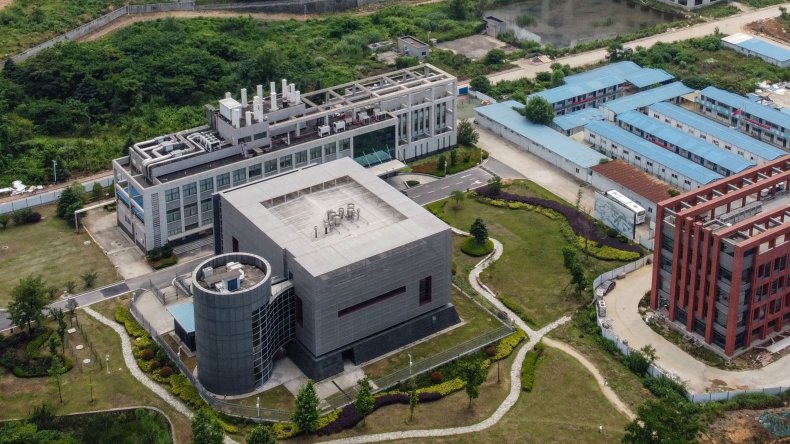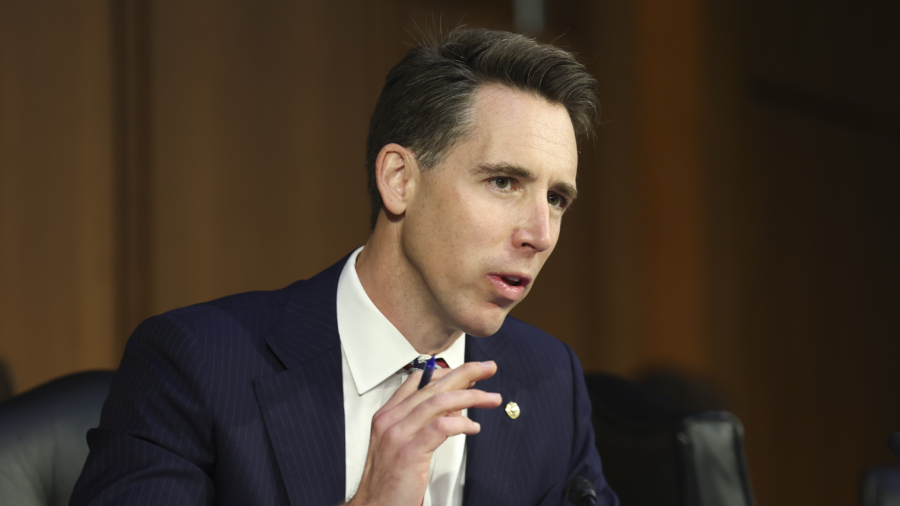THE ORIGINAL'FALSE FLAG'
Chance or Nazi plot? Exhumation of 1933 Reichstag fire 'arsonist' could show Hitler orchestrated blaze to stay in power
27 February 2023
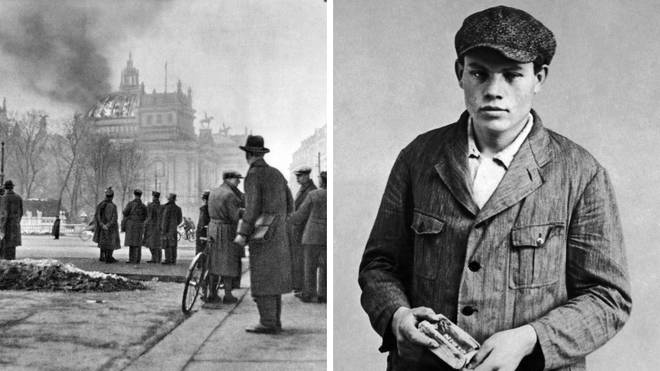
On this day 90 years ago, flamed engulfed Germany's parliament building - the Reichstag - six days before a national election, which historians say helped Adolf Hitler secure re-election as chancellor.
Dutch communist Marinus van der Lubbe confessed to the attack and was sentenced to death, aged 24. Then, and for a longer time afterwards, he was considered the sole perpetrator of the fire.
There have been some debates among some historians over whether the fire was simple dumb luck, handing Hitler his re-election, or whether it was an orchestrated manoeuvre by the Nazi Party to regain power.
Now, nearly 100 years on, van der Lubbe's body has been exhumed in the hope of finding a more definitive answer.
The main purpose of his exhumation was to determine whether it was indeed van der Lubbe that had been buried in the Leipzig South Cemetery.
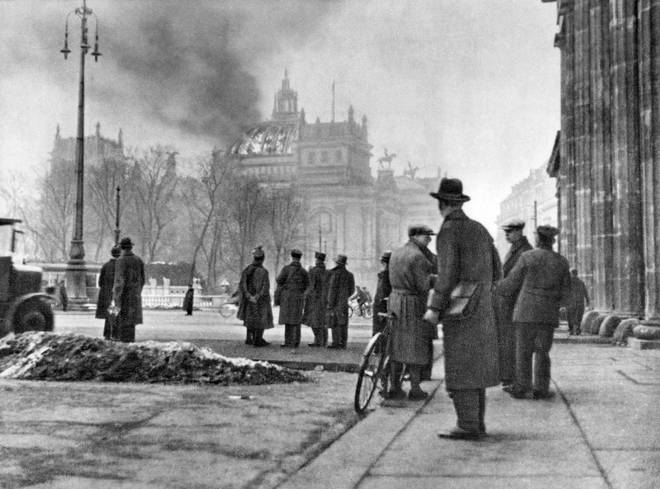
But a pathologist is also examining his remains to see if there are any traces of toxins due to speculation that he had been given to confess to his crime, reported.
There has been major support for the theory that it was solely van der Lubbe that committed the crime since Fritz Tobias published a book that argued the Reichstag fire was a "blind chance".
This theory argues that only one perpetrator could have carried out the attack as the Nazi party appeared surprised by the news, worrying that it was the beginning of a communist revolution.
Read More:
Read More:
Van der Lubbe was also the only person arrested in the building at the time of the fire and was the only person who confessed to the crime.
But others believe that the "thoroughly prepared" nature of the arson attack suggests a larger plan beyond the capabilities of a mere 24-year-old communist.
“When it comes to the question of whether Marinus van der Lubbe could have carried out the arson attack all by himself, the evidence is overwhelming,” Carter Hett told the publication.
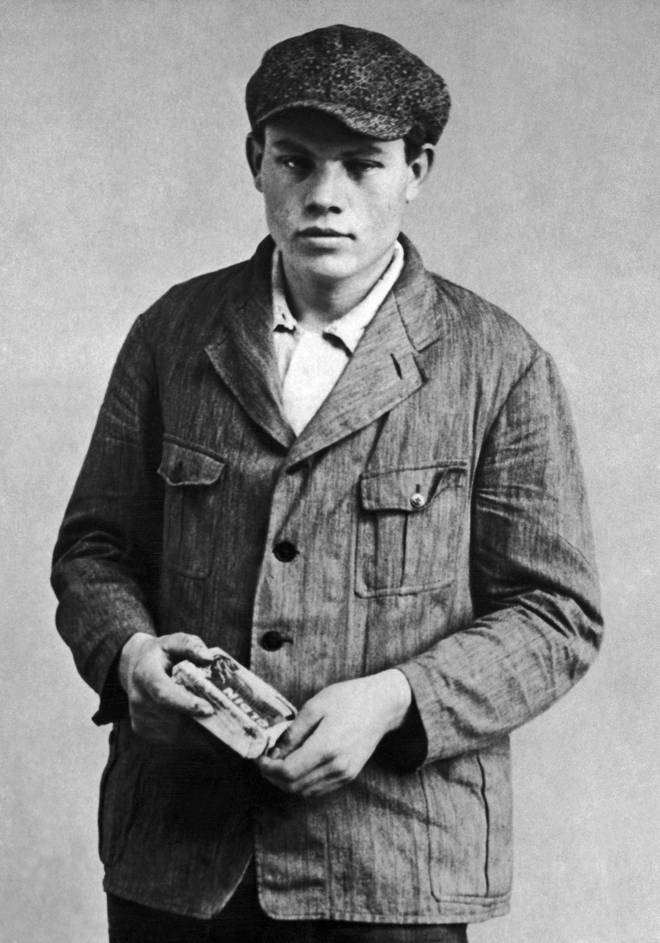
“There is no way he could have set fire to the plenary chamber within the 15 to 20 minutes at his disposal. He would have needed a hydrocarbon accelerant.”
“It is true that we are lacking any evidence as to how a link-up between Van der Lubbe and the SA could have come about,” Carter Hett added.
“It does still seem insane that they would have picked this unstable, almost blind young man as the fall guy.”
"Blind chance, an error" or Nazi plot?

Regardless of the cause of the fire, it is widely accepted that the chaos generated by the Reichstag fire helped Hitler to secure re-election as chancellor.
The fire, which was blamed on the "enemy within", took place just six days before the 1933 German federation.
Hitler was able to persuade Germany's president at the time to issue the Reichstag Fire Decree, suspending civil liberties in Germany.
A huge number of communists were arrested, including in the Reichstag, crippling communist participation in the election and helping Hitler to victory.
How the Nazis Exploited the Reichstag Fire to Launch a Reign of Terror
Ninety years ago today, a fire engulfed the Reichstag in Berlin. The arsonist, Marinus van der Lubbe, was hoping to inspire resistance to fascism, but the Nazis used the fire as a pretext to impose a regime of violent terror against the German left.

The Reichstag in flames, February 1933. (Wikimedia Commons)
The Nazis had not yet established an untrammeled dictatorship, and they immediately used the Reichstag fire to strengthen their position. Claiming that the fire was meant to be the signal for a communist insurrection, they cracked down violently on their enemies — most of all the activists of the Communist Party (KPD).
Many people assumed that the Nazis must have been responsible for the fire, which came at such a convenient moment. Indeed, “Reichstag fire” still serves as a shorthand term for an act of terror used as an excuse to seize power.
However, the truth was simpler. The man responsible was a Dutch left-wing radical, Marinus van der Lubbe, who had been arrested inside the burning Reichstag. Van der Lubbe was a tragic figure whose actions contributed to the very outcome he wanted to prevent — a Nazi dictatorship that suppressed the organizations of the German working class.
A Political Maverick
Van der Lubbe was born on January 13, 1909, in the Dutch town of Leiden. He grew up in poverty. His father abandoned his mother and her seven children when Van der Lubbe was seven years old, and his mother died when he was just twelve. From that point on, Van der Lubbe was taken care of by his half sister and her husband. Both later described him as a sincere and selfless man.‘Reichstag fire’ still serves as a shorthand term for an act of terror used as an excuse to seize power.
Marinus — or Rinus as he was known — wanted to become a mason and started to work at a construction site. His fellow workers nicknamed him “Dempsey,” after the boxing champion Jack Dempsey, on account of his strength. It was at work that he encountered radical ideas, joining the Communist Youth Movement at the age of sixteen.
A work accident damaged his eyes, leaving him unable to work as a mason. He had to rely on a measly sum paid by social insurance and whatever jobs he could find. But he also became an activist, chairing meetings, putting up posters, selling the publications of the Communist Party of the Netherlands (CPN) in the street, and joining demonstrations.
Soon he engaged in his first confrontations with the police. The front page of the January 26, 1931 issue of the Dutch Communist Party newspaper De Tribune carried an article denouncing police violence against Van der Lubbe. It described him in glowing terms as a thoughtful comrade who was as strong as he was brave. In his hometown of Leiden, Van der Lubbe became a well-known figure among working-class radicals.
A headstrong, rebellious character, Van der Lubbe did not really fit in the CPN. He started doubting the party as it became increasingly rigid and top-down in the early 1930s. In 1932, Van der Lubbe and some of his comrades produced their own journal for unemployed workers called Werkloozenkrant. They insisted that the CPN’s rhetoric about “independent struggle from below” was no more than empty words.
In the late ’20s and early ’30s, while still a party member, Van der Lubbe traveled across Europe by walking and hitchhiking, working at farms in return for a meal and a place to stay for the night. After the Wall Street crash of 1929, there were many unemployed workers like him wandering Europe. Sometimes, Van der Lubbe traveled in company, but more often he preferred to go his own way. The party leadership did not appreciate the fact that he went on such travels on his own initiative.The council communists were a current of Marxists who rejected any role for political parties or trade unions in the emancipation struggle of the working class.
In 1931, Van der Lubbe left the CPN and joined the activities of the loosely organized council communist movement. The council communists were a current of Marxists who rejected any role for political parties or trade unions in the emancipation struggle of the working class. They put their hope in workers’ self-activity instead to form the workers’ councils that would reorganize society.
As Van der Lubbe and his comrades explained it in Werkloozenkrant:
Workers should unite, make decisions, and elect some of their own to implement those decisions under supervision of the others. This is what is called a workers’ council.
On a Knife’s Edge
In the early weeks of 1933, the situation in Germany was on a knife’s edge. The Nazis were approaching power, yet millions of workers were still organized in left-wing parties and trade unions opposing them.In the early weeks of 1933, the Nazis were approaching power, yet millions of workers were still organized opposing them.
Communist propaganda was a mixture of bravado and ominous warnings. On February 1, 1933, the KPD paper Rote Fahne carried the headline “Storm over Germany!” and claimed that the working class was in a state of feverish activity. However, there was no mass resistance when Hitler was appointed chancellor on January 30 and the Nazis began to install their dictatorship.
Van der Lubbe wanted to see the situation for himself and traveled to Berlin. He arrived in a country where the two main workers’ parties, the Social Democrats (SPD) and the KPD, were unable to organize effective resistance to the rise of Nazism. Both underestimated the danger posed by Hitler in power and both lacked an adequate analysis of fascism.
As the German socialist historian Wolfgang Abendroth later observed, the SPD “stuck its head under the sand while fascism grew,” comforting itself with the mantra ‘‘Germany is not Italy.” The party leadership believed that a possible Hitler dictatorship might follow the precedent of Otto von Bismarck’s anti-socialist laws in the nineteenth century, when the state had banned socialist publications but respected the immunity of SPD parliamentarians from prosecution and allowed individual socialists to run in elections.
Attempting to defend the Weimar Republic, the SPD increasingly abandoned the struggle for social and political rights. From 1930 onward, it gave toleration in the Reichstag to the government of Heinrich Brüning, who would otherwise have been unable to stay in power. This enabled Brüning to ignore parliament and rule by decree as he imposed deep cuts to public spending that worsened the current economic depression.In 1932, the SPD supported the right-wing nationalist Paul von Hindenburg in the presidential election.
In 1932, the SPD supported the right-wing nationalist Paul von Hindenburg in the presidential election. Hindenburg rewarded them for their votes by backing a coup that removed the Social Democrats from their stronghold in the regional government of Prussia. Shortly afterward, he appointed Hitler as chancellor.
The Social Democrats refused to join the KPD in a general strike against the coup in Prussia or in response to Hitler’s appointment. The SPD leadership declared it would not be the first to “leave the sphere of the constitution and legality” and instead filed a motion of distrust against Hitler. By doing so, the SPD leaders avoided a dangerous and bloody struggle against fascism, at the cost of much greater bloodshed a little further down the line.
Dissolving Like a Sugar Cube
For its part, the KPD was a determined opponent of the Nazis and prepared for a period of illegality. However, it also underestimated the terror that was to come. The KPD expected the Nazi movement to quickly fall apart because of the contradictory interests running through it. Leading Communists referred to Brüning’s rule as already representing “fascism,” which suggested that Hitler’s accession to power would make little difference.The KPD expected the Nazi movement to quickly fall apart because of the contradictory interests running through it.
The KPD’s attitude toward the SPD was based on Stalin’s concept of “social fascism,” according to which social democracy in a country like Germany played a similar role to Italian fascism by repressing the working class and ensuring the survival of capitalism. This false theory justified sectarian hostility to Social Democrats and stood in the way of joint action against Nazism.
Visiting Berlin in late 1932, the Argentinian revolutionary Hippolyte Etchebéhère described what he encountered:
Confusion, disarray, an utter lack of confidence in their party and in their leaders . . . And beneath our very eyes the formidable German Communist Party, Berlin’s premier party, the most powerful section of the Communist International, dissolved like a sugar-cube in water.
Van der Lubbe observed similar helplessness. He attended rallies organized by the SPD and the KPD that the police broke up without meeting resistance. Meanwhile, Nazi stormtroopers marched through the streets unhindered.
After his arrest in the Reichstag, Van der Lubbe explained what motivated him. The new German government, he stated, meant continuing oppression of the working class and war. He had seen already how the Nazis were limiting the freedoms of workers and their organizations, but he believed that the workers were not ready to act without approval from their leaders: “In my opinion, something needed to be done to protest against this system.” He decided to set fire to a building associated with the state.
Van der Lubbe insisted he had acted alone: “No one has helped me with this.” However, the Reichstag fire became the ideal pretext for the Nazis to tighten their grip on power. In addition to arresting Van der Lubbe, the police apprehended Ernst Torgler (the chairman of the KPD faction in the Reichstag) and three Bulgarian communists, Blagoy Popov, Vasil Tanev, and Georgi Dimitrov, accusing them of participating in a conspiracy to seize power by force.
The Nazis used the supposed threat of a communist revolution to justify the elimination of civil liberties. They arrested thousands of their opponents, most of whom were communists, and put them in concentration camps. Dozens were killed right away.
The Brown Book
Suspicions quickly arose that the Nazis had started the fire themselves. The Brown Book of the Reichstag Fire and Hitler Terror appeared to confirm those suspicions. It was published in August 1933 by the World Committee for the Victims of German Fascism, a project of Willi Münzenberg, the brilliant propagandist of the Communist International.
The Brown Book mixed facts about the brutality of the Nazis with fiction about a Nazi conspiracy involving Van der Lubbe, adding a large dollop of character assassination to the mix. Van der Lubbe, according to the Brown Book, was a “tool” of the Nazis. It made him out to be a vain, attention-seeking figure and a habitual liar.The Brown Book mixed facts about the brutality of the Nazis with fiction about a Nazi conspiracy involving Marinus Van der Lubbe.
In a sentence that was omitted from the English-language version, the Brown Book described Van der Lubbe as a patsy who “at the latest in the final months of 1932, had succumbed to National Socialist temptations” and was manipulated by the Nazis to take the blame for arson committed by their stormtroopers.
Another passage left out of the English translation depicted Van der Lubbe as someone who was homosexual “in his whole essence”:
His character is feminine, his reserve and shyness in front of women is established by the testimony of many, his need for closeness and tenderness from men is notorious.
All versions of the Brown Book insisted that Van der Lubbe’s alleged sexuality provided the link with the Nazis.
It was well-known that Ernst Röhm, the head of the Sturmabteilung (SA) paramilitary squad, was homosexual. The Brown Book claimed that the Dutch council communist had been one of Röhm’s lovers. The German-language version labeled Van der Lubbe a Lustknape — a “pleasure boy.” The supposed proof of Van der Lubbe’s complicity and the role of the SA presented in the Brown Book and in the campaign that followed later turned out to be fake.
In the Netherlands, a small group of Van der Lubbe’s comrades came to his defense. They published a Roodboek that included statements from various radicals who had known Van der Lubbe, as well as his diary and letters. But their efforts could not match the Münzenberg propaganda machine.
“A Miserable Faustus”
Much was made of Van der Lubbe’s conduct during the trial. He was mostly silent, his head sunk onto his chest. He struck a pathetic figure, seemingly unable to wipe his nose.
Was he perhaps being drugged to prevent him from revealing the truth? Surely his behavior showed that he was at best a fool, unable to answer for his actions. So the speculation went from observers of the proceedings.
Van der Lubbe’s behavior also surprised his Dutch comrades, who had expected him to take the opportunity to explain what he had done. It contrasted strikingly with the conduct of Georgi Dimitrov. An experienced leader with a record as a parliamentarian and trade union organizer, Dimitrov eloquently defended himself. Following what was now the Comintern line, he also attacked Van der Lubbe as the tool of the Nazis, a “miserable Faustus.”A comrade who saw pictures of Van der Lubbe in court, with his silent, sunken head, remarked that this is what a defeated working class looks like.
However, when we take Van der Lubbe’s situation into account, his behavior was not so mysterious. On March 29, the Nazis introduced the Lex Lubbe — a law that imposed the death penalty for his action. Van der Lubbe had not been afraid of jail, but now he faced execution.
Meanwhile, as the months went by, it must have become clear to him that his action had resulted in no positive effect. Most of the Left abandoned him and he found himself attacked not only by the Nazis but also by his codefendants. A comrade who saw pictures of Van der Lubbe in court, with his silent, sunken head, remarked that this is what a defeated working class looks like.
Van der Lubbe’s silence was a refusal to participate in the charade. At times, confronted by what for him must have been incredible stories, Van der Lubbe broke out in laughter. When he did speak, he repeated the message that he alone had set the Reichstag on fire, insisting that his codefendants were innocent.
Despite all the attempts by the Nazis, there was no evidence to prove that Van der Lubbe was part of a conspiracy. The legal system had not yet been completely subordinated to the Nazi state at this point. On December 23, 1933, the court finally decided to acquit Torgler, Popov, Tanev, and Dimitrov. Only Van der Lubbe was found guilty and sentenced to death. Hitler was furious, feeling humiliated by Dimitrov and what he called “senile judges.” He would never permit a court to disobey his wishes again.
In the early morning of January 10, 1934, a silent, seemingly calm Van der Lubbe went to the guillotine. He would have turned twenty-five three days later.
Remembering Van der Lubbe
The controversy over Van der Lubbe’s role briefly resurged in 2019 when journalists reported a new finding that supposedly proved the existence of a Nazi conspiracy to burn down the Reichstag. In 1955, Hans-Martin Lennings, a former SA member, had filed a statement with a notary that he and several other stormtroopers had transported Van der Lubbe into a burning Reichstag.
In fact, people had known about this statement for decades. Over the years, several proponents of the theory that the Nazis were responsible for the fire had made oblique references to the statement, without publishing it or revealing the name of its author.
They obviously had doubts about the credibility of Lennings, who had suffered serious brain trauma in 1930 after a fight with communists. He tried to have himself committed to a mental hospital during the Third Reich and had difficulty distinguishing fact from fiction, according to his close relatives.
In any case, the statement was contradicted by witnesses who had seen Van der Lubbe loitering around the Reichstag before the fire. In his recent book The Hitler Conspiracies, historian Richard Evans went over the available evidence yet again, concluding that Van der Lubbe had indeed spoken the truth.
Van der Lubbe was mistaken in his assessment of the political situation in Germany at the beginning of 1933, and in his expectations of what might result from his action. But those mistakes surely pale in comparison to the abject stupidity of the KPD and SPD leaders who obstructed united action against the rise of Nazism.
The arson unquestionably played into the hands of the Nazis. However, if it had never happened, they would no doubt have found — or made — another excuse for imposing their dictatorship. Van der Lubbe’s sincerity led to his death. We can recognize his error while remembering him as a working-class revolutionary.
CONTRIBUTOR
Alex de Jong is editor of the socialist journal Grenzeloos and an activist in the Netherlands.
